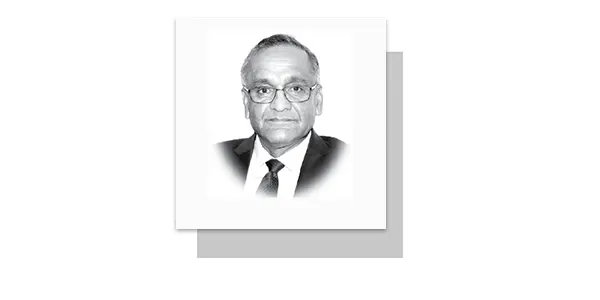Ukraine war is now two and a half years old since it started in February 2022. War took a new turn with Ukraine’s recent incursion into Russia’s Kursk province, thus expanding the war onto Russian soil. Putin has promised a befitting response to this provocation. Media is buzzing with analysis and predictions on how and when this war will end. For a moment let us forget the current events in Ukraine War. Sooner or later, this war would end and the scene would change. Whatever the new scenario this war leads to, fact is that Russia would continue to exist where it is and so will more than two dozen diverse European nations. Politico-strategic scenarios change, geography remains the same. That is a lesson from history that was well refreshed in Afghanistan. My question is, what Europe would look like after the Ukraine War ends.
Europe’s post WW-II dispensation has hinged on its trans-Atlantic solidarity and draws its security and strength from NATO: that was the case, both during the cold war and in the unipolar and multipolar years that followed the dissolution of (erstwhile) Soviet Union in 1991. Historically, Russia’s relationship with European nations has been an interesting story where Russia has alternately played the role of a friend and a foe. During World War–II, Russia had not only fought as an Allied power (alongside US, UK and France) but also deliberated the post WW-II global architecture together with the US Presidents and British Prime Ministers, in Casablanca, Tehran, Yalta and Potsdam. Immediately after the war, scene changed dramatically. Moscow, an ally of the West in World War became its top enemy in a Cold War. Cold War had physically split European nations with the famous iron curtain. Berlin Wall became an icon and a flashpoint of that split.
And then in our life times, we saw the German Band Scorpion celebrating the fall of Berlin Wall – with the famous song, “Winds of Change”. Romance filled lyrics brought tears, especially in the eyes of newly and blissfully reunited Berliners: “The world is closing in, And did you ever think, That we could be so close like brothers?” And then in 2014, Crimea happened. Once again, West was threatening Moscow and Europe rallying behind the US and putting sanctions on Russia; another six years passed and then came the prolonged war in Ukraine. Once again, European Nations stood firmly behind Washington while feeling safe under NATO’s security umbrella.
Most European nations depend on NATO for their security. Trump is right in saying that Europeans have not invested enough in their security. Ukraine itself is fighting a war on the strength of the West. For Ukraine, and particularly for its war, Western support is oxygen. European countries are not homogenous in the way they perceive Russia. Every European nation has its unique view of that giant country that exists in its proximity and carries some kind of a historical baggage. Smaller, especially former Socialist block countries are fearful of Russia, yet reliant on it in a million ways. For them the question would remain: Is Russia a friend, a foe or a reality that exists and has to be accepted as it is ?Non-NATO countries have strong and well founded apprehensions. Germany has its interests in Russian energy. Recall those discussions around Nord Stream.
Strong far right tendencies in several European countries are a disuniting force that erodes the uniformity in European thinking. What glues these otherwise heterogeneous nations together is the US leadership and Trans-Atlantic support. NATO, a central pillar of Trans-Atlantic solidarity, was a construct of the Cold War, that got a new lease of life and a raison d’être with War in Afghanistan and then with Ukraine situation. In all these decades, a lot has changed –most important among that are the US priorities. The US priorities now include rivalry with China, Asia Pacific theatre and Gaza. Not to say that Europe and Ukraine are no more important for the US but certainly it is ‘one of the many’ items on its ‘to do’ list; neither the sole nor the top priority. And that makes a big difference. There won’t be a return to the mythical past.
Upcoming US elections could be a defining moment not just for Ukraine war but also for Europe’s future. Democrats’ candidate Kamala Harris has vowed to continue what she calls “ironclad” US support to Ukraine war. But Trump’s has voiced his criticism of the US support to Ukraine war and, even to its commitment to NATO. A few months ago, he – in his usual unambiguous style – had said that Russia can do whatever the hell it wanted to, with the NATO members who do not spend adequately on their defence. He has said that he would want to end Ukraine War within 24 hours by striking a deal with Russia.
Ukraine war is well into its third year. American public does not have good memories or experience of long drawn wars fought thousands of miles away; be it in Vietnam or in Afghanistan. American people are getting fatigued with tax-payers’ money going to overseas wars. Trump’s loud articulation of opposition to Ukraine War has served to catalyze that fatigue process. US elections with its unpredictable results are just around the corner. And guess what Putin knows that well!
—The writer is former Special Secretary, Pakistan Foreign Ministry and former Ambassador to Nepal and South Africa.










